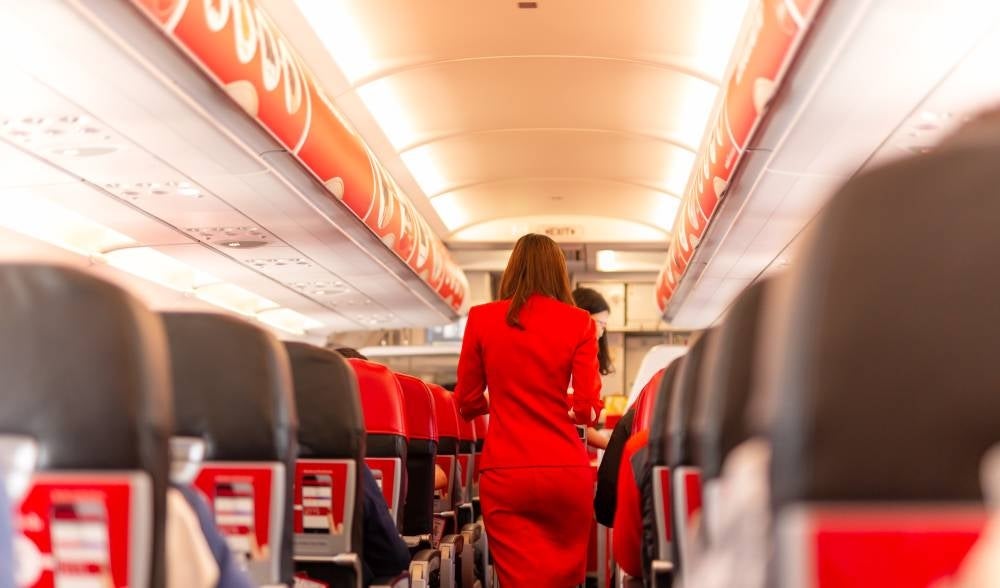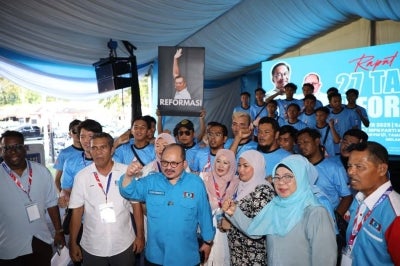Indefinite pay cut: Many aviation crews still under moratorium, at risk for AKPK
HANI SHAMIRA SHAHRUDIN, HAJAR UMIRA MD ZAKI
SHAH ALAM - While the economic sector is slowly picking up again as Malaysia begin its transition towards the endemic, employees attached to the aviation industry are still feeling the pinch of the Covid-19 pandemic which struck the country for the past two years.
Some claimed that their salaries have yet to be reinstated to the pre-pandemic stage where they earned thousands of ringgits just based on their flying hours and commission alone.
This led them to struggle in paying off their commitments and have stayed under moratorium for the past two years.
A stewardess, from budget airlines AirAsia who declined to be named, revealed that up until this day she was still under the loan moratorium which had been introduced during the pandemic as she could not afford to pay her mortgage and hire purchase loans.
“Even though the bank has long revoked moratorium for people in other industries, the bank is still providing the moratorium for those in the aviation industry.
“Right now, I am still under moratorium since the pandemic and I have to extend it since my pay has not been back to normal.
“However, there is no point to keep applying for the moratorium or the so-called payment plan relief for post-pandemic introduced by Credit Counselling and Debt Management Agency (AKPK) because at the end of the day you still have to pay double or triple in the future.
“You are also banned from applying any loan in the future for a period of time,” she told Sinar Daily.
She said that during the pandemic, many allowances were cut and that their pay have yet to recover to the pre-pandemic state even though the flying hours were more or less the same.
Prior to the pandemic, she said the airline had given the cabin crew an allowance which was called a bonus incentive, where the employees were paid RM11.50 per hour based on their flying time.
“The bonus incentives could reach up to RM1,200 a month but during the pandemic, a new salary structure was introduced and the bonus incentive was revoked.
“The management in an email had said that the bonus incentive is now incorporated into the new flying allowance but it was only 50 per cent if compared to before,” she said.
In documentation sighted by Sinar Daily, the new flying allowance was increased from RM10 to RM16 for junior cabin crew, RM14 to RM20 for experienced cabin crew while RM18 to RM24 for senior cabin crews.
“The bonus incentive has been removed as the company no longer deems that crew should be incentivised to come to work.
“We believe that in these difficult times, the crew will honour their assigned duties and ensure their performance is maintained at the highest level,” the document read.
The previous bonus incentive was allegedly given to cabin crews in full if they did not take any of the 15 days of yearly medical leave, and the stewardess claimed that it was mainly for the management to find a way for a smooth operation throughout the year.
"Can you imagine, as the government announced the monthly minimum wage amount to be RM1,500 now, that is what we have been earning since we moved to the new REDQ Office next to KLIA2.
“We earned only RM1,000 basic salary back in LCCT time and now our allowances are cut by about 23 per cent per hour, that is a lot," she said.
She revealed that the company has reinstated other departments salary back to pre-pandemic state since December last year but it was not the same for the cabin crews.
The management, she said, keeps on saying that the company was not making money and that they should be grateful for still having a job while people out there were dying to be at their position now.
As much as she was grateful for still having a job, she reminded that the cabin crews had their personal commitments too.
“It does not help that the owner of the company is flashing his brand-new Tesla while the employees are under financial pressure, the company still owes passengers their refunds,” she said.
She, who had been with the airline since 2018, said this had pressured many cabin crews and pilots to leave the company to seek for better job with a more stable income, but those who were left had to carry the burden for the lack of manpower.
“We are not getting what we are supposed to get and we cannot be on moratorium forever.
“Just in May, more than 20 cabin crews tendered their resignation as they could not take it any longer.
“Aside from being underpaid, we are overworked,” she added.
The airline company had segmented the cabin crews into the AK(A320/321 AIRBUS) which covered short haul of domestic flights and international flights, while Air Asia X covered long haul of international routes.
The stewardess said at the moment, AirAsia X was not operating and the company was finding a way for AirAsia X to at least operate by taking some of AK routes such as Kota Kinabalu and Kuching, hence why they recently opened an application for AK crew to operate bigger fleet which was the Airbus A330 with the same flying allowance to the smaller fleet.
The only long-haul routes with bigger feat flights at the moment, she said, were the ones to Kota Kinabalu and Kuching.
She said AK had also reportedly purchased an Airbus A330 plane from the Air Asia X as the latter was suffering due to not being in operation.
Sinar Daily spoke to an economist from Putra Business School Prof Madya Dr Ahmed Razman Abdul Latif about the issue at hand.
He said that the labour issues related to Air Asia management should be dealt within their human resources (HR) department.
“However, if there is a violation with their employment right and they were unable to resolve the issue with their HR department, the cabin crew may seek alternative recourse of action as provided in the Employment Act.
“Of course, once this issue is brought to the court, Air Asia’s reputation might be affected and this is something that they should avoid in the first place,” he said.
Dr Razman said Air Asia’s decision to shift to e-commerce was necessary to diversify their revenue stream as airline business was likely affected due to volatility of plane fuel prices and travel restriction due to the endless pandemic.
“Hence, it becomes a necessity for them rather than a choice if they intend to grow bigger and more sustainable,” he said.
Speaking on the pay cut, Endau Analytics Analyst Shukor Yusof said the cabin crews’ source of incomes at any airlines were determined by management and guided by market forces.
“Other airlines such as British Airways also face the same situation,” he said.
Thus, Shukor commented, regardless of being listed by the AKPK or not, Air Asia’s management needs to ensure their financial position to remains sound.
During the pandemic, Air Asia had pivoted to e-commerce platforms with the launch of its Super App, which had three main pillars which were travel, e-commerce and fin-tech.
Shukor said while it was a good move, it could not replace the bulk of revenue that comes from its main aviation business.
“As e-commerce is not Air Asia’s core business, it cannot replace the bulk of revenue that comes from airfares,” Shukor added.
Sinar Daily had reached out to AirAsia for comments on the issue but has yet to receive a reply.
Download Sinar Daily application.Click Here!














